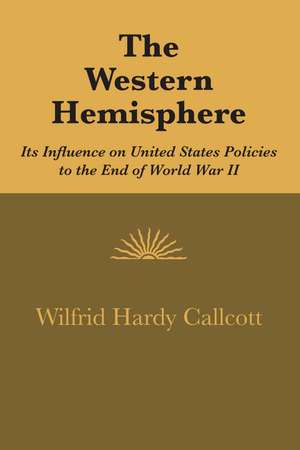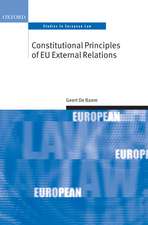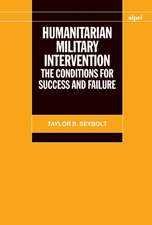The Western Hemisphere: Its Influence on United States Policies to the End of World War II
Autor Wilfrid Hardy Callcotten Limba Engleză Paperback – 1968
In The Western Hemisphere: Its Influence on United States Policies to the End of World War II, Wilfrid Hardy Callcott traces the rise of this awareness of the essential unity of the Western Hemisphere in international affairs. Although Callcott concentrates on the United States, he discusses all hemisphere countries, and his inclusion of Canada adds an additional dimension to previous studies on the subject.
From the early days of the Republic to the end of World War I, the relations of the United Stales with its neighbors gradually developed from mere curiosity and from on-the-spot decision-making into policy. During the eighteenth century the persons entrusted with United States foreign policy pressed forward with their own country's westward expansion, while they expressed only an academic interest in the affairs of other Western Hemisphere nations from Canada to Brazil.
By the end of the nineteenth century the United States had enthusiastically joined the imperialist nations. Although it soon replaced the use of force with economic controls, its military and economic manipulations naturally generated more fear and antagonism in the neighboring nations than cooperation and sympathy.
After World War I, attention to the hemisphere was fostered by the need for strategic raw materials that were to be found from Canada to South America, and by Old World rivalries and needs that endangered New World interests. Canadian and Latin American views of Europe and the League of Nations became much like those of the United States. The new conditions that arose called forth the Good Neighbor policy to combine economic and strategic values in a complex program that included intellectual, social, and cultural elements. World War II accentuated the new consciousness and compelled recognition of the significance of hemisphere relationships in all of the New World nations.
Preț: 378.33 lei
Nou
Puncte Express: 567
Preț estimativ în valută:
72.39€ • 78.88$ • 61.00£
72.39€ • 78.88$ • 61.00£
Carte tipărită la comandă
Livrare economică 23 aprilie-07 mai
Preluare comenzi: 021 569.72.76
Specificații
ISBN-13: 9780292766129
ISBN-10: 0292766122
Pagini: 520
Dimensiuni: 152 x 229 x 36 mm
Greutate: 0.45 kg
Editura: University of Texas Press
Colecția University of Texas Press
ISBN-10: 0292766122
Pagini: 520
Dimensiuni: 152 x 229 x 36 mm
Greutate: 0.45 kg
Editura: University of Texas Press
Colecția University of Texas Press
Notă biografică
WiIfrid Hardy Callcott (1895–1969) was Professor of History and Dean of the Graduate School at the University of South Carolina.
Cuprins
- Preface
- Acknowledgments
- I. Beginnings of Hemisphere Thinking
- II. Pandora’s Box: Complications and Responsibilities
- III. Readjustments
- IV. Dollars and Idealism
- V. War and Peace, 1914–1920
- VI. 1921–1929: Conditions
- VII. 1921–1929: Relations
- VIII. The Hoover Quadrennium, 1929–1933
- IX. The Good Neighbor: Theory
- X. The Good Neighbor: Practice
- XI. Approach to War: Political
- XII. Approach to War: Economic and Strategic
- XIII. World War II: Problems
- XIV. World War II: Policies for the Future
- Bibliography
- Index
Descriere
In this book, the author traces the rise of awareness of the essential unity of the Western Hemisphere in international affairs.
















